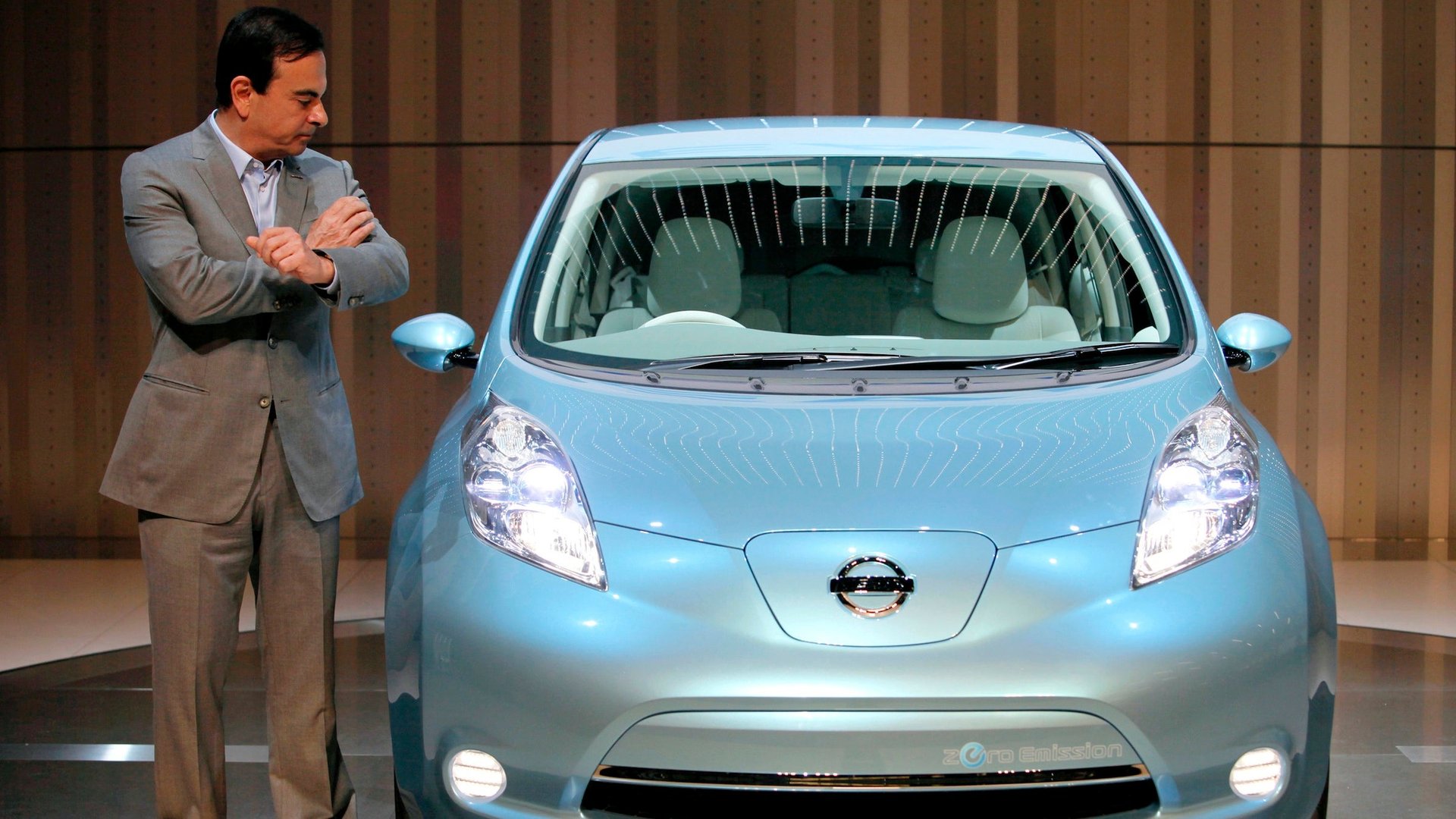Despite lagging sales, Nissan’s CEO still believes in the Leaf plug-in
Despite big bumps in the road for the roll out of Nissan’s electric vehicle, the Leaf, CEO Carlos Ghosn still believes the car represents his company’s future. Sales of the Leaf and other plug-in vehicles are important tests of whether electric cars can truly win over the masses. But for Nissan, the Leaf is a particular cause for concern since the company made a $5 billion bet on a vehicle that has so far shown disappointing sales. That, in turn, has put a dent into Ghosn’s image as a master manager.


Despite big bumps in the road for the roll out of Nissan’s electric vehicle, the Leaf, CEO Carlos Ghosn still believes the car represents his company’s future. Sales of the Leaf and other plug-in vehicles are important tests of whether electric cars can truly win over the masses. But for Nissan, the Leaf is a particular cause for concern since the company made a $5 billion bet on a vehicle that has so far shown disappointing sales. That, in turn, has put a dent into Ghosn’s image as a master manager.
At a roundtable with reporters today, Ghosn said the public needs to be patient when it comes to the Leaf, since many consumers still think electric vehicles are golf carts. But he dismissed the idea that he is betting the whole company on the Leaf. “It’s a big stake, but it’s not going to shake the foundation of Nissan,” Ghosn said. The Leaf does cost twice as much to produce than a regular car, but Nissan was able to reduce the price tag by more than $6,000 by starting production of the vehicle in the US. That should help lagging sales, and Ghosn said he still has a goal of electric vehicles comprising 10% of all sales by 2020.
Still, the company is facing other headwinds in the critical US market, and saw its flagship Altima sedan fall behind the Honda Accord in sales. Ghosn noted that Nissan needed to have a 10% market share to makes its return on investment in the US worthwhile, but the auto maker currently captures about 8% of the market. To boost the Altima, Nissan is reducing its reliance on the less profitable fleet sales and changing its sales strategy.
The news in Europe is worse, and Ghosn, who is also CEO of Renault, expects to see a tough environment there from 2014 to 2016. “At best, the market will be stable,” Ghosn said. But he thinks Renault can capture more market share with the launch of the Captur, Renault’s first crossover, and a revamped version of the Espace.
The good news is that the US is seeing a recovery in auto sales, and overall sales for 2013 are expected to be in the 15 million to 15.5 million range. Nissan sales have improved in March compared to the previous two months, and market share has moved closer to 9%. The auto maker is also focused on increasing local production in the US and elsewhere, partly to help protect it from currency fluctuations.
The situation has also normalized in China, where Nissan lost a year of sales because of the territorial dispute between China and Japan that caused sales to dip for Japanese automakers. Nissan is the leading Japanese brand in the key Chinese market, and Ghosn still has a 10% market share target in China. But he delayed the timetable of reaching that goal by one year to 2017, given the sales it recently lost. China will also be an important market for the Leaf.
If Ghosn can get the US and China on a more positive track, then investors and analysts will have more patience when it comes to bumps for the Leaf. But given how much Nissan is putting into it, they won’t wait forever.